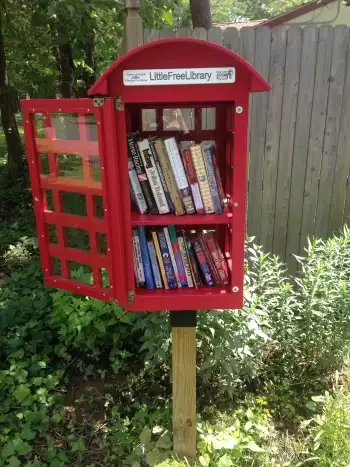
As a public library lover and employee, I am all about borrowing materials for free and returning them (in a timely fashion) to my local library. Of course, there are other ways to get your hands on a good book, and the Little Free Library movement is a fantastic way to share your fondness for books and reading.
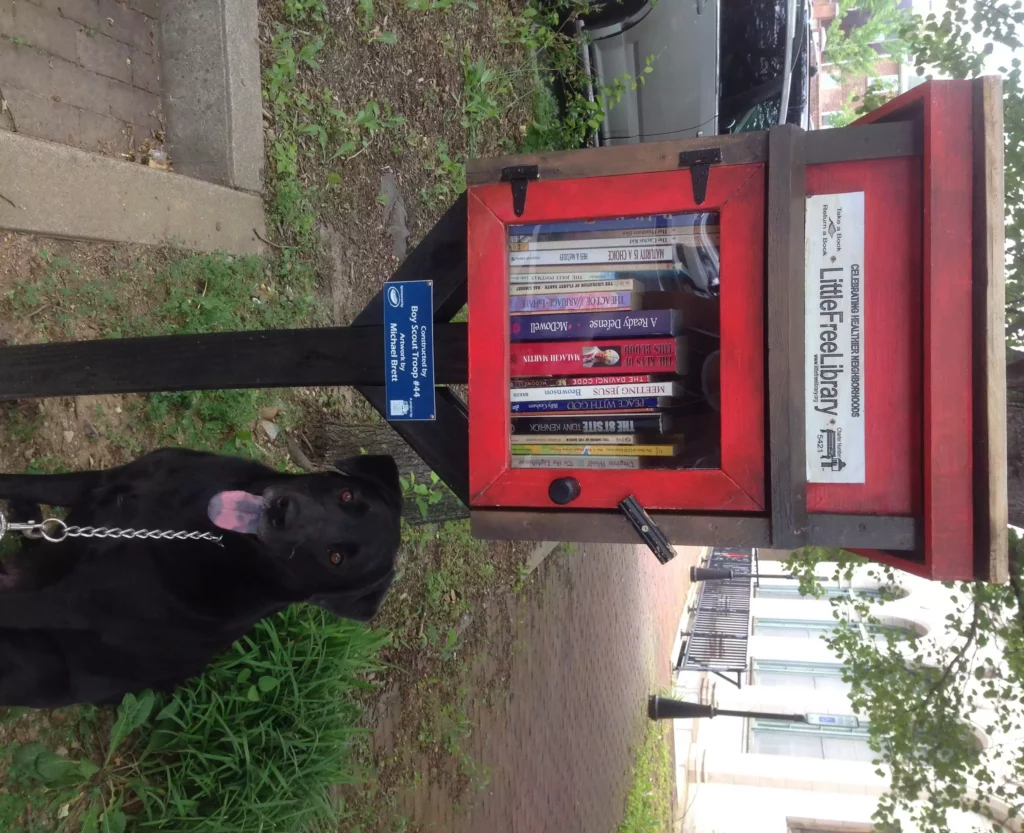
My black lab, Chili, is my constant companion when stocking up the LFL boxes.
I’ve lived in Easton, Pennsylvania for about two years, and in that time a very exciting thing has happened: four “Little Free Libraries” (LFLs) have sprung up in the city’s vibrant downtown sector. These neat little wooden hutches are placed at key points on pedestrian walkways, and at any given time you will find something new and different on the shelves. The idea is to “take a book, return a book” to support an endless exchange of knowledge and fun.
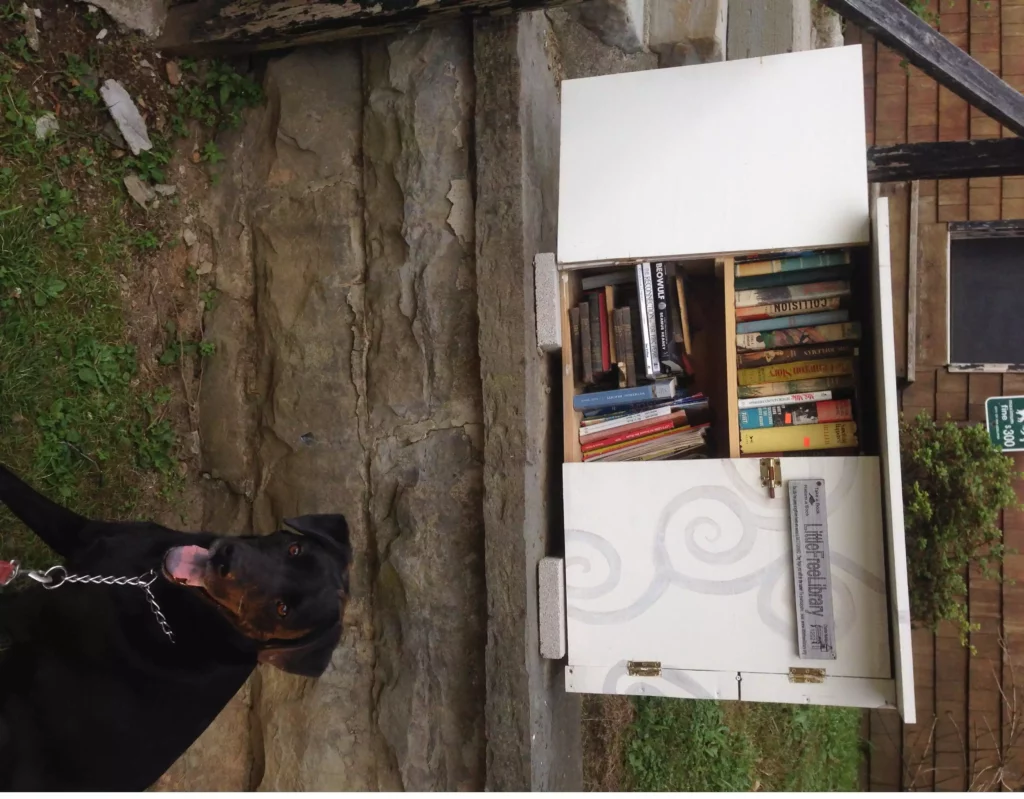
This handmade wooden hutch is the biggest of the boxes in our area.
I often walk my dogs through the city center and try to stock up the LFLs with new materials whenever I can. Sometimes people will stop me and ask what I’m doing, and I happily explain the concept of the movement. In most cases their faces will light up as they exclaim, “What a great idea!” I can only hope they plan to return later on and make their own contributions.
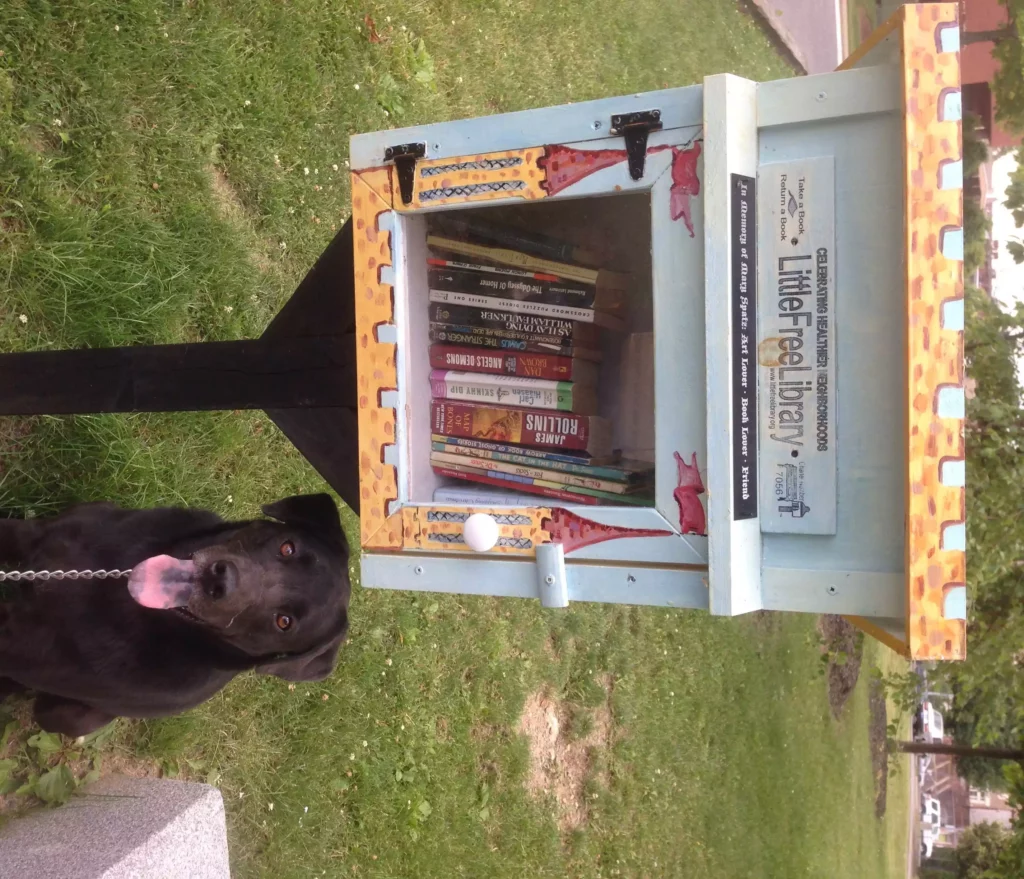
We especially love this castle-themed box in a park on the Delaware River.
It’s an amazing feeling to fill each box with beautiful books, as sometimes they’re quite empty. It’s an even better feeling to pass by again later and see that some of your books have already been chosen and, hopefully, replaced with new titles. I rarely take books for myself as my job provides more than enough to keep me entertained for years to come. Still, I know that not everyone is at the library five days a week like me. The LFLs provide an opportunity for everyone in the community to share in their love of books any time, at no cost.
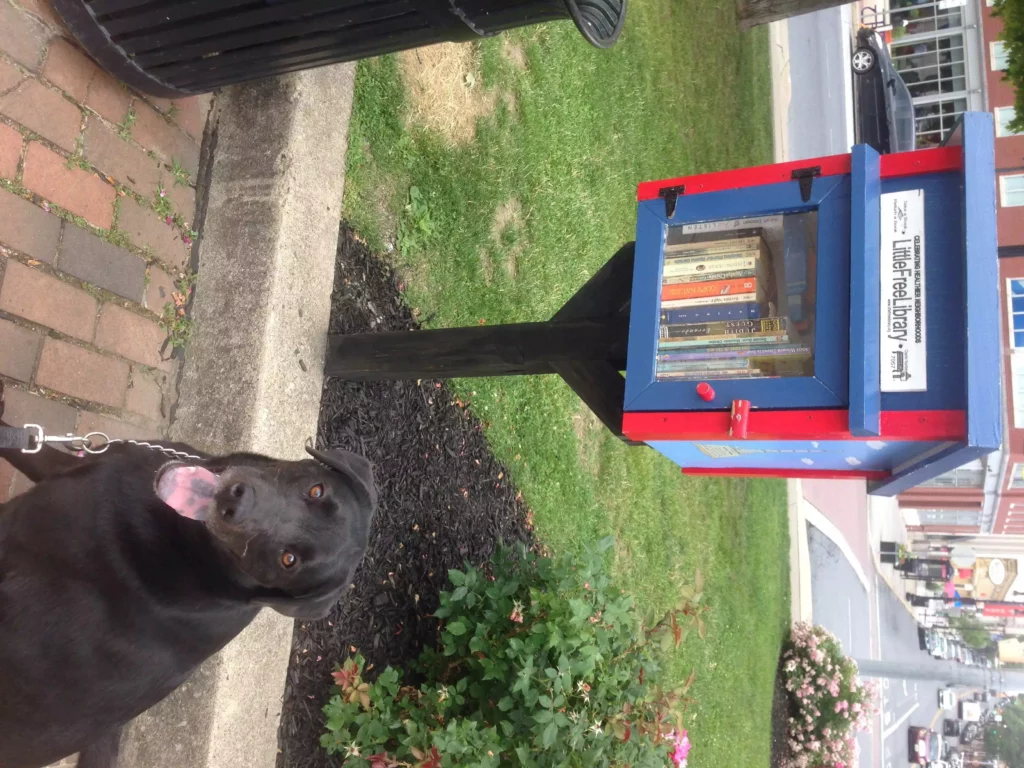
This box, in Easton’s center square, gets the most business.
The Little Free Library movement started in 2009 with an initial goal to build 2,510 LFLs, as many libraries as Andrew Carnegie supported at the turn of the 20th century. That number was quickly eclipsed, and now there are over 15,000 LFLs worldwide. If you’d like to learn more about the Little Free Library movement, you can visit their website. The site has a map of every Little Free Library location; take a look and you’ll find one right here in Princeton! If you’re really inspired you may even consider opening a Little Free Library in your own front yard.
